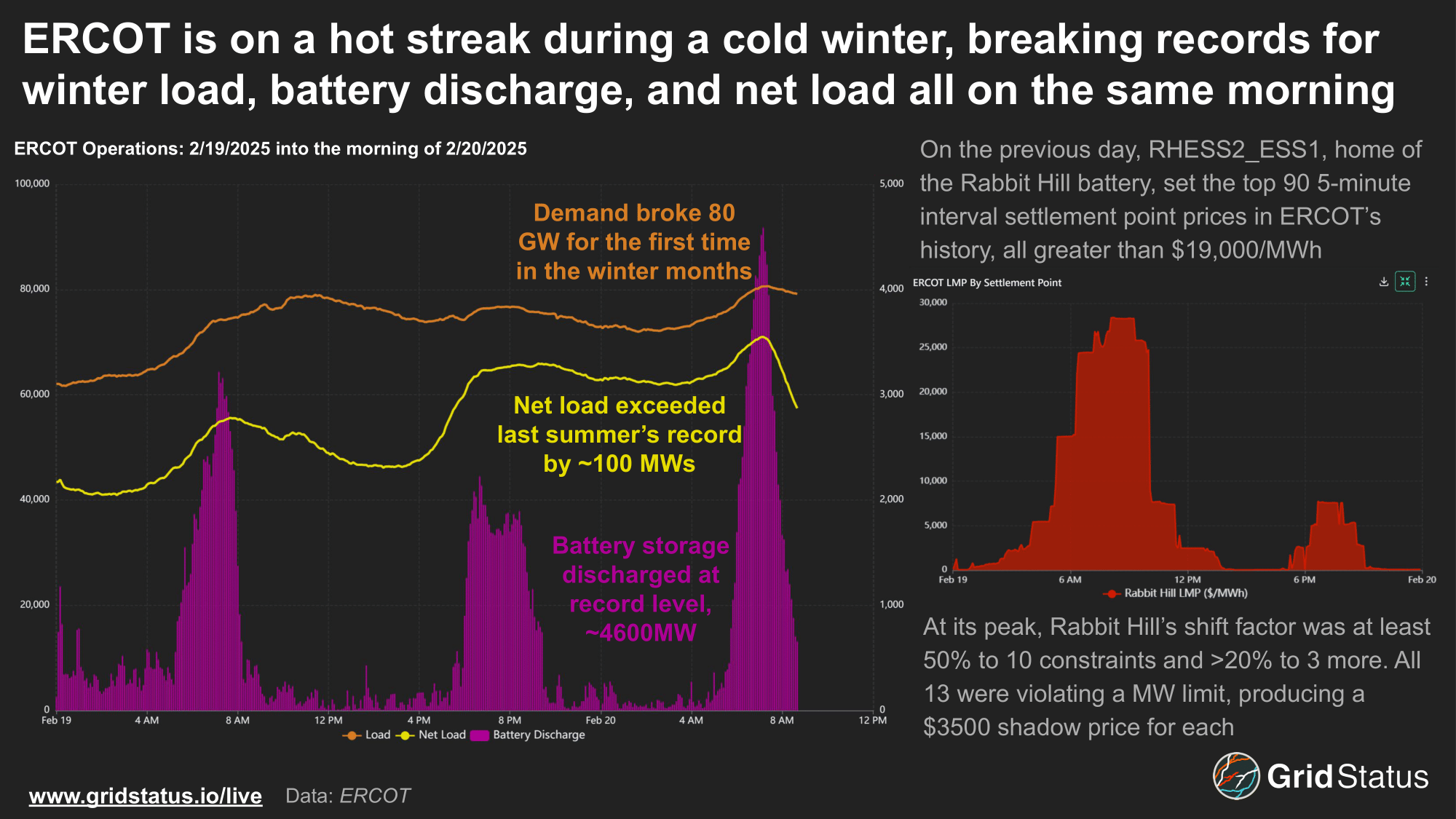ERCOT is on a hot streak during a cold winter
ERCOT set new records in load, net load, solar, prices, and battery discharge within a few days, let's explore the data.
It’s been a record-breaking week in ERCOT. Let’s analyze how cold weather, load growth, and new generation sources are creating conditions never before seen in Texas.
ERCOT broke its record winter peak yesterday and today, culminating in a new record above 80 GW for the first time at 8AM CST this morning. But even more has been going on under the hood in the last few days.

Cold temperatures were widespread across Texas, reaching the low teens in Dallas and below freezing in Houston and Austin. Electric heating helped drive a robust demand ramp, although it ended up several GWs below ERCOT’s day-ahead forecast. As load peaked, net load exceeded last summer’s record, nearly hitting 71 GW at 7:10 AM CST.
The day-ahead forecast did anticipate higher demand by several GWs, but this came after a substantial under forecast miss on the previous day.

Cold weather failed to chill ERCOT’s hot battery storage fleet, with discharge approaching 4600 MW, ~250 MW higher than the previous record, also at 7:10 AM CST.

Alongside these records, solar growth has continued, with a new record jumping 2 GW just last Sunday to cross 24 GW for the first time.

Yesterday, Rabbit Hill captured the dreams of those looking to strike it rich (and nightmares of folks managing risk) in ERCOT with sustained LMPs well above what might normally be considered extreme pricing. In fact, Rabbit Hill can now claim the 90 highest single-interval settlement point prices since at least 2011. This type of calculation can be data intensive, requiring scanning and sorting billions of rows of data. We just launched a public listing of our data on Snowflake to make these calculations more accessible.

This location north of Austin has made frequent appearances in ERCOT’s planning materials in recent years as Texas’ general load growth and plans for massive local industrial facilities have triggered multiple transmission upgrades and expansions.
Track records in ERCOT and all other ISOs using our Record Tracker tool, and download data via our Data Exporter tool, API, or Snowflake to manage your operations during extreme events.


